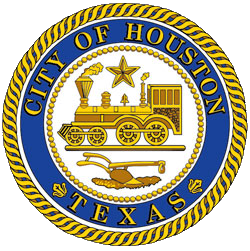HOUSTON – The City of Houston is activating its Public Health Heat Emergency Plan, providing resources for those who need assistance escaping the heat.
Anyone without air-conditioning can seek shelter at the following city cooling centers on Sunday, July 22, 2018 between 1 p.m. and 6 p.m.:
· Acres Homes Multi-Service Center: 6719 W Montgomery Road
· Kashmere Multi-Service Center: 4802 Lockwood Drive
· Southwest Multi-Service Center: 6400 High Star Drive
· Sunnyside Multi-Service Center: 9314 Cullen Boulevard
· Houston Public Library (Downtown): 500 McKinney Street
People without adequate transportation to a designated cooling center can call 3-1-1 to request a free ride from METRO.
High-risk groups such as adults age 55 and older, children under the age of five and people with chronic illness are urged to stay inside air-conditioned buildings between 1 p.m. and 5 p.m., the hottest part of the day.
The Houston Health Department urges people protect themselves and loved ones from potentially deadly heat-related illness with the following tips:
· Increase water consumption. Drink lots of liquids even before getting thirsty, but avoid those with caffeine, alcohol or large amounts of sugar because these can result in the loss of body fluid.
· Conduct outdoor work or exercise in the early morning or evening when it is cooler. Outdoor workers should drink plenty of water or electrolyte replacement beverages and take frequent breaks in the shade or in an airconditioned facility. Those unaccustomed to working or exercising in a hot environment need to start slowly and gradually increase heat exposure over several weeks.
· Wear light-colored, loose fitting clothing that permits the evaporation of perspiration.
· Do not leave children, senior citizens or pets unattended in a vehicle.
· A wide-brimmed hat helps prevent sunburn as well as heat-related illness. Sunscreen also protects from the sun’s harmful rays and reduces the risk of sunburn.
· If the house is not air-conditioned, seek accommodations in air-conditioned facilities during the heat of the day: multi-service centers, malls, movie theaters, libraries, etc.
· Take frequent cool baths or showers if your home is not air-conditioned.
Symptoms of heat exhaustion include faintness, dizziness, excessive sweating, cool or clammy skin, nausea or vomiting, muscle cramps, and a rapid, weak pulse. People experiencing these symptoms should lower the body temperature by getting to a cooler place, drinking water, taking a cool shower or bath and resting.
A throbbing headache, lack of sweat, red, hot and dry skin, nausea or vomiting, loss of consciousness, and a rapid, strong pulse are signs of heat stroke. If these symptoms occur, call 9-1-1 immediately and try to lower the person’s body temperature until help arrives.
Even when the Public Health Heat Emergency Plan is not activated, people may seek air-conditioning in city multi-service centers, libraries and recreation centers during normal business hours.
